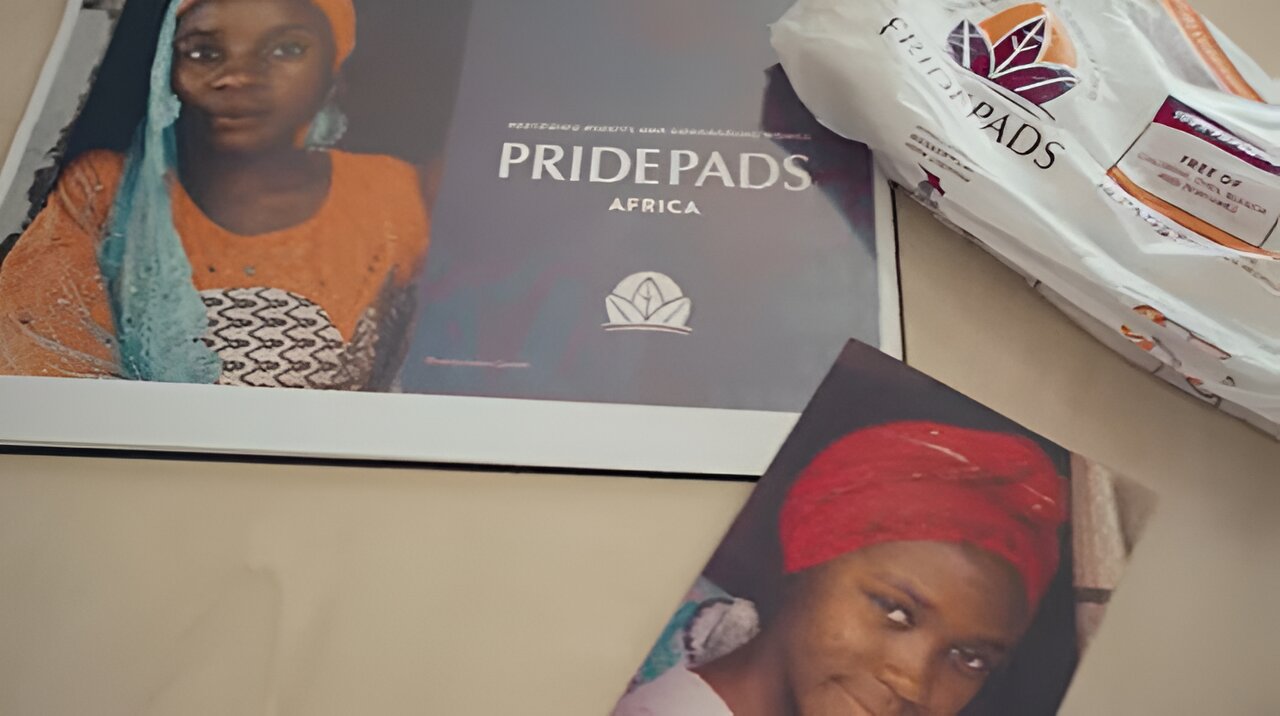

Several years ago, Ajume Wingo was riding a bus in his home country of Cameroon when the vehicle made an unexpected stop.
From his seat, the CU Boulder associate professor of philosophy watched as a group of women began shouting at a young girl who looked to be between 11 and 13 years old.
“I heard them say things like, ‘You are a disgrace to women,’ and, ‘How dare you travel when you ought to be sitting in place,'” Wingo said. “When I heard that phrase, I understood what was going on.”
“Sitting in place” is a euphemism for menstruation, and Wingo quickly realized that the bewildered girl had just gotten her period for the first time. He calmly approached her and explained that menstruation is a normal, natural experience—and that she had nothing to be ashamed of.
After that experience, Wingo decided he needed to do something to help reduce the stigma around menstruation in Cameroon. In 2019, he co-founded PridePads Africa, a nonprofit that educates girls, boys and community members about menstruation and gives them biodegradable sanitary pads.
Though the COVID-19 pandemic interrupted the organization’s work, PridePads Africa has already reached thousands of rural Cameroonians. Slowly but surely, it’s changing the narrative around periods.
“In a couple of years, students and community members have gone from thinking menstruation is bad, dirty or something to be ashamed of to understanding that it’s a natural biological process,” says Elizabeth Cleveland, PridePads Africa’s executive director.
Addressing period poverty
Around the world, period poverty remains an often-overlooked problem that can exacerbate gender inequality. This term applies to women and girls who have limited or inadequate access to menstrual products and menstrual health education, either because of financial constraints, social and cultural stigmas or some mix of both. The World Health Organization, UNICEF and other global humanitarian organizations have all identified period poverty as a major issue.
In Cameroon, girls often stay home from school each month during their periods. Over time, they fall behind in their classes and, eventually, many drop out entirely. This may ultimately lead them down a path toward early teenage marriage, sex trafficking and teenage pregnancy.
“In most African primary schools, the girls are at the top of their class,” says Wingo. “And they go on like that until toward the end of secondary school, when the whole thing reverses. Girls disappear from classes every month and, suddenly, the boys are ahead, and the girls are behind.”
Poor performance in school—or dropping out altogether—means African girls have limited options as they reach young adulthood. Because of the stigma and shame around menstruation, many also grapple with low self-esteem. And, without access to sanitary products, some girls develop infections from using old newspapers, leaves or rags.
But providing them with sanitary pads—and educating communities about menstruation more broadly—means girls can stay in school and thrive. This gives them more choices, like whether to work, get married (and, perhaps just as important, whom to marry) and raise a family.
“Women have so much to offer the world, and we are giving them a chance to have a voice and a seat at the table in many places where that is uncommon,” says Stephanie Carter, PridePads Africa co-founder. “It is hard to believe that something as simple as a sanitary pad and education can have such a profound impact on the world, but that is the power of information.”
‘Simple ways’ to make life better
PridePads Africa relies on a team of staffers in Ngaoundéré, Cameroon, to produce and distribute biodegradable pads, as well as spread the message of menstrual health and hygiene.
They make the biodegradable pads using two machines from Aakar Innovations in India, including one that was purchased with funding from the Boulder Valley Rotary Club, the Boulder Flatirons Rotary Club and the Rotary Club of Denver Southeast.
The machines have the capacity to produce between 1,500 to 1,800 pads per day using materials that break down completely within 90 days, like natural gum fibers sourced from pine trees. That’s a huge improvement from commercially produced sanitary pads, which are made primarily of plastic. Scientists estimate plastic pads will take between 500 and 800 years to decompose.
“In fighting one problem, period poverty, we did not want to contribute to another, environmental degradation,” says Cleveland.
On the education front, the Cameroon-based team also visits schools and women’s groups, where they explain the biological process of menstruation and the reproductive system more broadly. They also teach girls how to manage their periods by wearing pads.
In the future, Wingo would like to expand the reach of PridePads Africa to other regions of Cameroon and beyond. In the meantime, he likens the organization’s impact to the starfish story, in which a child walking along the sand throws one beached starfish at a time back into the water. A passerby asks, “There are so many, how can you make a difference?” The child tosses another starfish and replies, “I just made a difference in that one’s life.”
Even seemingly small actions—like providing a teenage girl with sanitary pads—can lead to big ripple effects, Wingo says.
“A lot of people talk about high-level philosophical principles to address gender discrimination when, in fact, there is something concrete we can do,” he says. “This project has caused me to start thinking about very simple ways we can make life better for people.”
Provided by
University of Colorado at Boulder
Citation:
Reducing gender inequality, one biodegradable menstrual pad at a time (2023, December 11)
retrieved 11 December 2023
from https://phys.org/news/2023-12-gender-inequality-biodegradable-menstrual-pad.html
This document is subject to copyright. Apart from any fair dealing for the purpose of private study or research, no
part may be reproduced without the written permission. The content is provided for information purposes only.





